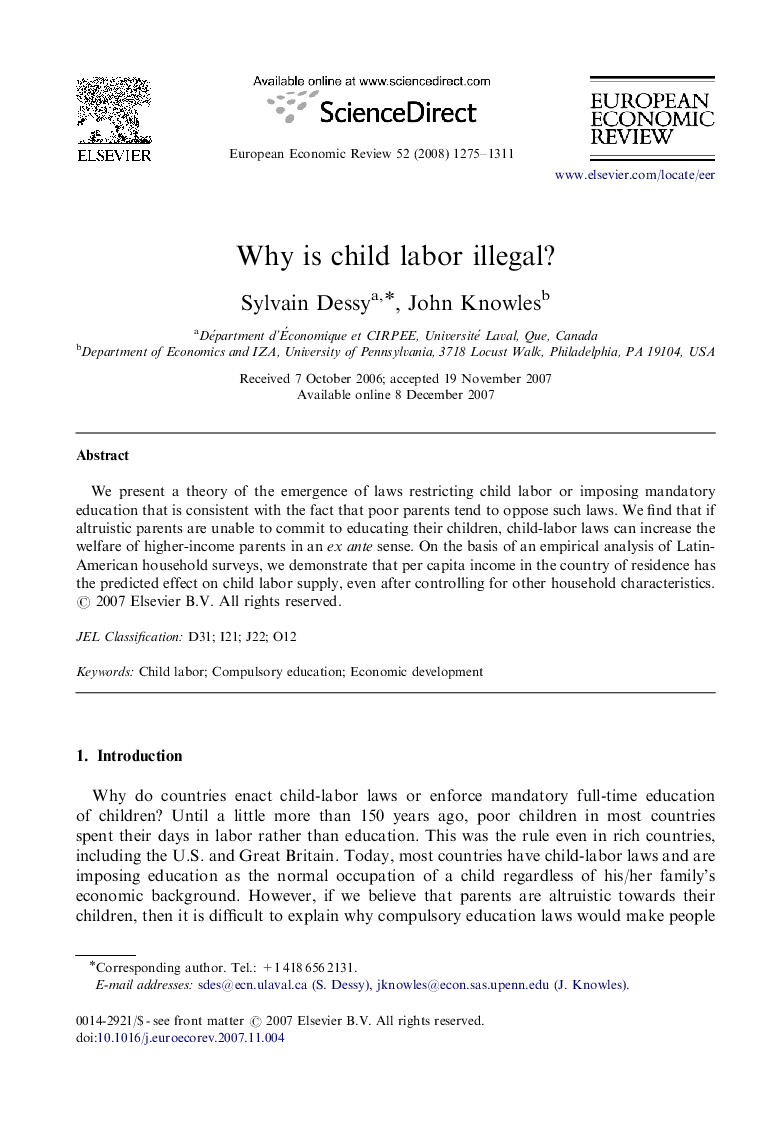| Article ID | Journal | Published Year | Pages | File Type |
|---|---|---|---|---|
| 5067509 | European Economic Review | 2008 | 37 Pages |
Abstract
We present a theory of the emergence of laws restricting child labor or imposing mandatory education that is consistent with the fact that poor parents tend to oppose such laws. We find that if altruistic parents are unable to commit to educating their children, child-labor laws can increase the welfare of higher-income parents in an ex ante sense. On the basis of an empirical analysis of Latin-American household surveys, we demonstrate that per capita income in the country of residence has the predicted effect on child labor supply, even after controlling for other household characteristics.
Related Topics
Social Sciences and Humanities
Economics, Econometrics and Finance
Economics and Econometrics
Authors
Sylvain Dessy, John Knowles,
